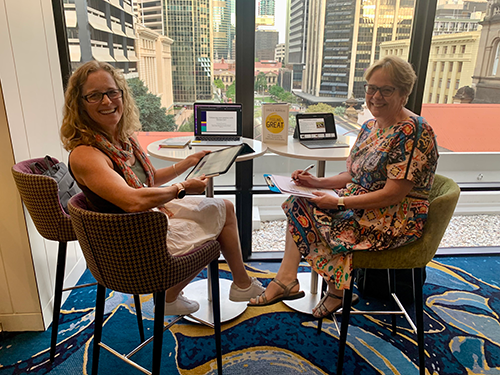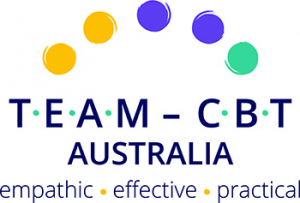What are the ESSENTIALS of good therapy?
I have just returned from Brisbane after presenting at the 2022 APS Clinical College Conference, “Innovations in Clinical Practice”. There was a buzz of excitement about meeting like-minded people and sharing ideas about working with different client groups.
The conference organisers did a great job putting this together. There were many excellent presentations: Schema Therapy, trauma informed care, culturally responsive treatment, Emotionally Focussed Couples Therapy, research on eating disorders, and How to treat perfectionism with Acceptance and Commitment Therapy, just to name a few.
It was an inspiring smorgasbord of offerings. As a younger psychologist, I remember feeling both excited and somewhat overwhelmed when shown the myriad of choices about how to help people.
Where do you begin? What is most important to learn first?
I would suggest that no matter the framework you choose, the one constant to strive for is the need for rapport.
Rapport may be defined as the quality of the alliance between therapist and client and is the crucial determinant of therapeutic effectiveness.
 At this conference, I watched demonstrations of therapists working empathically and kindly with clients. They used similar communication skills to achieve excellent rapport. Such skills come naturally to those amongst us who can channel an internal, kindly Carl Rogers, ( the father of person-centred therapy) to communicate unconditional positive regard with words, empathic gestures or even grunts. Others find it more difficult.
At this conference, I watched demonstrations of therapists working empathically and kindly with clients. They used similar communication skills to achieve excellent rapport. Such skills come naturally to those amongst us who can channel an internal, kindly Carl Rogers, ( the father of person-centred therapy) to communicate unconditional positive regard with words, empathic gestures or even grunts. Others find it more difficult.
Most of us could benefit from tuning up our skills with some of our more challenging, argumentative clients or even in our personal relationships! Empathic communication needs to be the starting point to establishing rapport and becoming effective therapists.
One great benefit of TEAM-CBT is that it explicitly teaches how to build rapport through empathy. This was not Dr David Burns’ natural approach! He openly admits how he learned to connect with every patient by watching a talented intern, Stirling Morey. Dr Burns transcribed hours of conversations to identify and name the techniques Stirling used intuitively.
David Burns called these strategies The Five Secrets of Effective Communication. They make up essential micro-counselling skills everyone should be taught in initial training. Used well, they can radically improve client outcomes.
The Five Secrets show how to respond to a complaint or criticism.
- Disarm: Find an element of truth in what the other person is saying to you. Do not argue, defend your position, or explain why they are wrong.
- Empathize: Use thought empathy by repeating back the words they have said so they feel heard. Also, reflect back on the likely feeling they express at the time e.g. “It sounds like you feel pretty upset about that situation”.
- Inquiry: Check-in if you are understanding them. Ask curious questions to keep them talking so you can understand better. E.g. “Have I got that right?”
- I Feel: Express your own feelings in a respectful considered manner. This is the assertive part of the conversation where you can say, “I feel a bit awkward about that situation or a bit sad that happened.”
- Respect: Your response needs to be conveyed with an attitude of respect and finding something genuinely positive to say about the other person. This is called stroking and includes validation. I encourage you to think of stroking a cat, to remember to compliment them on their good qualities, even in the heat of battle or conflict. It also helps to acknowledge it makes sense they feel that way, given what has happened and most people would feel the same.
Using this approach may not come easily at first. It seems to fly in the face of everything you are primed to do when criticised, which is to defend yourself or rush in to counter the criticism with your side of the story. Or, in the case of the therapy room, to jump in and try to fix the problem with helpful methods. After all, we have so many methods to choose from and we want our clients to get better quickly. But the best support we can give our clients is to truly listen to them.
TEAM-CBT provides us with the skills to build a strong working alliance with each client. With that in place, we are free to implement other aspects of effective therapy to suit a particular clients’ needs using our own personal style. My advice is to start with the 5 secrets and then explore the myriad of other techniques that are available in this wonderful field of psychotherapy.
Contact me if you are interested in learning more or would like to start one of my training courses. These skills are best learnt in a group setting where you can practice the steps and get specific feedback on what to improve.
I look forward to training with you. Contact me here.


